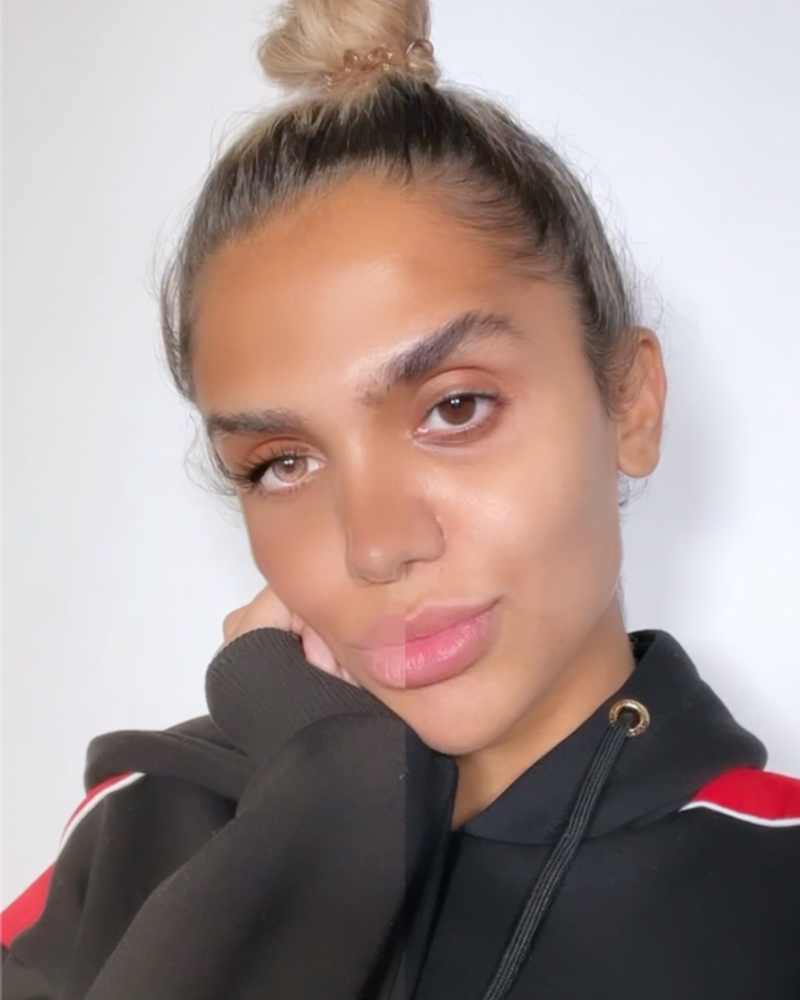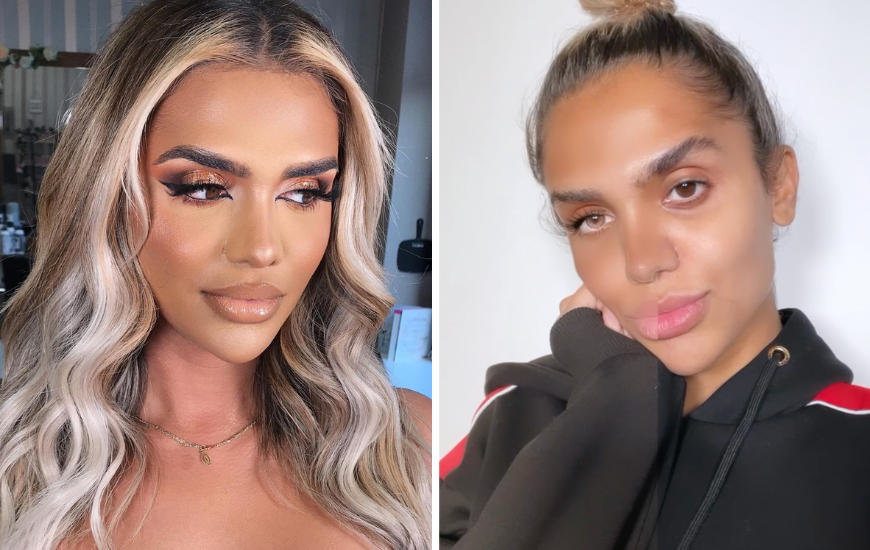Social media was once a space where the fourth wall was broken down and transparency and relatability were at the helm. However, over the years platforms have grown and developed as have the millions of daily users on them. What once was used as a space to connect with people all over the world has become a booming business and arguably a place of thwarted reality.
Social media, particularly Instagram, is often used as a highlight reel, showcasing curated tidbits of people’s lives showing only the very best. Along with this, we have seen a boom in the use of filters on platforms.
In various different ways, users are now able to warp their appearance – some in funny ways, others so realistic you’d be mistaken what people look like which, in turn, are creating unrealistic beauty standards. In a bid to bring back transparency to social media, UK entrepreneur Faye Kingston took a stand in 2020. Launching her own filter on Instagram, ‘Filter vs. Reality’. This filter, in short, aims to show people what you look like with or without a filter, with half the face airbrushed and porcelain and half the face normal.
“The idea behind my split-screen filter, ‘Filter vs Reality’, was to create something unique to show people how these dramatic beauty filters rid selfies of skin textures, tones, scars, everything that makes you and how it’s affecting our mental health,” she tells Emirates Woman.
A little over two years after launching, the filter has had nearly five billion impressions to date, with even celebrities like Jessie J and Jen Atkin jumping on the bandwagon. Below, Kingston tells us the inspiration behind launching the filter and how she’s bringing transparency back to the internet.

You’re now a well-known content creator on Instagram. What has your relationship been like with editing photos and using filters over the years?
I have been on a self-love journey for a long time and at this stage of my life I am in the best place I have ever
been, I have never been happier and it’s all down to self-love. I tend not to edit my body shape however I do edit my photos to brighten up the lighting and makeup etc. I have always been open about the edit as I got nothing to hide and like I said, ‘Social Media isn’t real life’.
What inspired you to launch ‘Filter vs. Reality’?
The idea behind my split-screen filter, ‘Filter vs Reality’, was to create something unique to show people how these dramatic beauty filters rid selfies of skin textures, tones, scars, everything that makes you and how it’s affecting our mental health. Don’t let these filters fool you; you’re unique, beautiful, strong, powerful, loved & worthy without any filter.
It’s now had nearly five billion impressions. What has the feedback been from the campaign?
I have been blown away by the positive response I had, and I never knew we all needed this reality check in our lives. So many people have reached out to me to say how my ‘Filter vs Reality’ filter has made a positive change of self-acceptance in people’s lives. It’s a reminder that social media is fake, and textured, pore-filled, and discoloured skin are all a natural occurrence.
How has using filters/Instagram over the years affected your mental health?
I was addicted to using filters until I realised social media is fake and what you see online simply isn’t real or achievable. The beauty filters can do more harm than good, altering self-image and pressuring young girls to try and be the way the filters make them look on the apps. And such pressure can cause depression or even eating disorders in some cases.
View this post on Instagram
In what way do you think it contributes to unattainable beauty standards?
The problem with these filters is you see a side of yourself with dramatic filters that doesn’t exist, which corresponds to an unnatural and inhuman ideal of beauty that you can now achieve with filters. It’s the unhealthy obsession we all have with that perfect look. A 2017 study in the journal Cognitive Research: Principles and Implications found that people only recognised manipulated images 60 per cent to 65 per cent of the time. With the prevalence of filters and airbrushing on social media, it is terrifying to think of how it will be possible for young people to grow up with standard, realistic images of what is beautiful.
What is your relationship like now with using filters on Instagram/social media?
I have a love and hate relationship with filters as all the playful filters are fine, but the ones that can be damaging are those with dramatic changes to the face – which can cause mental health and self-esteem issues. It’s easy to feel insecure, seeing how so much of the content we consume daily is filtered and photoshopped, and everyone looks picture-perfect; it’s hard not to point out your flaws, but REAL Is always beautiful.
How can we move forward in a world of social media to be transparent with the way we look/without filters?
I think it’s time to “break that habit” of overthinking how we look in pictures because nobody is perfect, and everyone has “bad photos” we choose what and what not to share on social media to put out a good image of ourselves. We all should move towards the powerful place of self-acceptance.
– For more on luxury lifestyle, news, fashion and beauty follow Emirates Woman on Facebook and Instagram
Images: Supplied












